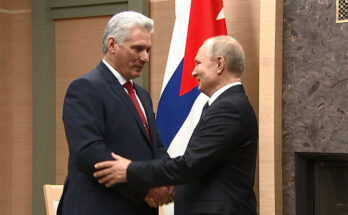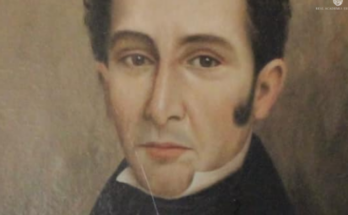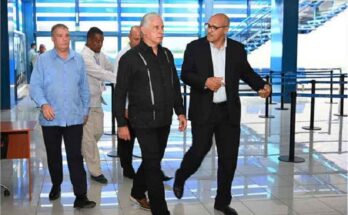Carlos Manuel de Céspedes went ahead of the other regions and on October 10, 1868 launched the proclamation of war for the independence of Cuba in La Demajagua, a sugar mill he owned, where he also freed his slaves and asked them to join the struggle.
At that time José Martí was only 15 years old. In view of this and also because the actions were taking place in the eastern part of the Cuban territory, logically he was quite far from the physical point of view of where the war had been conceived and was taking place.
But Martí felt that the struggle for Cuban independence was not alien to him. And an eloquent proof of this can be found in the sonnet entitled 10 de octubre which he conceived in 1869 and in which he emphasized in its initial part:
It is not a dream. It is true: a war cry
Launches the Cuban people, enraged;
The people who for three centuries have suffered
How much black oppression encloses.
In the course of the year 1869 Martí knew directly the repression of the Spanish authorities for his support to the cause of the independence of his native land.
He suffered first imprisonment and forced labor and then exile. Years later Martí became a continuator of the work done by those who, like Carlos Manuel de Céspedes, initiated the war for Cuban independence in 1868.
Martí felt great admiration and respect for those who threw themselves into combat and even offered their lives. Precisely in a work that he published on October 10, 1888 in El Avisador Cubano, in New York, he evoked Carlos Manuel de Céspedes and Ignacio Agramonte.
And when describing Céspedes’ way of proceeding in a specific way, he emphasized that it was necessary to have once taken a people on his shoulders to know what his strength was and he also detailed that he believed that his people were in him and that since he was the first to act, he saw himself as having his own personal rights, as if he had the rights of a father, over his work.
“He attended in the interior of his mind, Martí commented, the divine mystery of the birth of a people in the will of a man, and he does not see himself as a mortal, capable of errors and obedience, but as a monarch of freedom who has entered alive in the heaven of the redeemers. It does not seem to him that those who had no decision to precede him have a right to advise him. He regards himself as sacred, and does not doubt that his judgment should prevail. Perhaps he does not attend to the fact that he is like the highest tree on the mountain, but that without the mountain the tree cannot stand.”
On future occasions, especially in the late eighties and early nineteenth century, when he was already working to achieve independence in Cuba, Martí spoke again about Cárlos Manuel de Céspedes and the significance of what happened on October 10, 1868 in his Demajagua estate.
For example in the speech he gave at the ceremony held in 1887 at the Masonic Temple in New York, he said: “The purest mysteries of the soul were fulfilled in that morning of Demajagua, when the rich, getting rid of their fortune, went out to fight, without hating anyone, for decorum, which is worth more than it: when the owners of men, as the day was dawning, said to their slaves: “You are already free!”.
In the following years, Martí made other very important reflections on the struggle for the independence of Cuba, in its initial stage, and on the significance of being able to give continuity to the work undertaken by his predecessors.
And by way of example, I quote a fragment of what he said on October 10, 1890, at the event also held at the Hardman Hall in New York.
On that occasion he began his speech evoking the fallen in the previous stage of the struggle for independence, and pointed out the attitude that should be assumed to pay them a true homage, when he convincingly stated: “Others will arrive without fear to the pyre where our heroes smoke, as if quoting with the hecatomb; I tremble with shame: I tremble with admiration, regret and impatience. I seem to see crossing, roll call, a choleric and sublime shadow, the shadow of the star in the hat; and my duty, while I have any feet left, the duty of us all, while we have any feet left, is to stand up, and say, “Present!”
Consistent with what he was able to expose both on that and other occasions José Martí continued to give a transcendental contribution to the reorganization of the war for Cuban independence.
And after its resumption he could not conceive of being far from where the confrontations with the Spanish soldiers were taking place and so on April 11, 1895, together with Máximo Gómez and other Cuban patriots, he was able to return to his homeland.
In two words he summed up the pleasant sensation that overwhelmed him in that reunion with Cuba. He wrote: “Great joy”.
With singular determination he remained in the Cuban countryside until his fall in the Dos Rios area on May 19.




